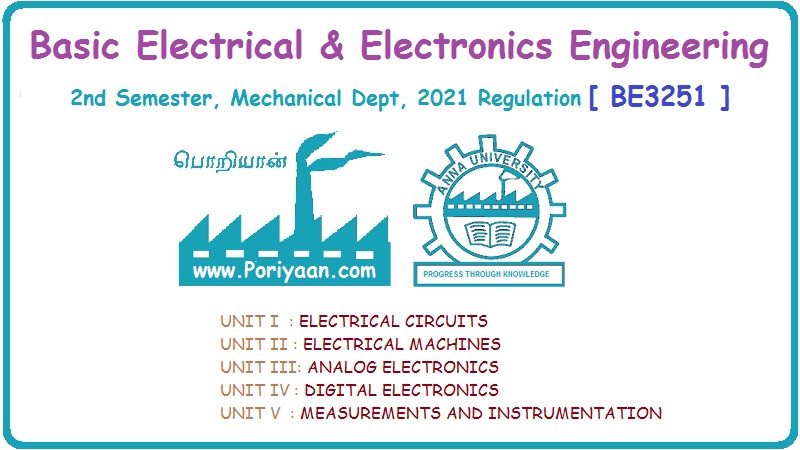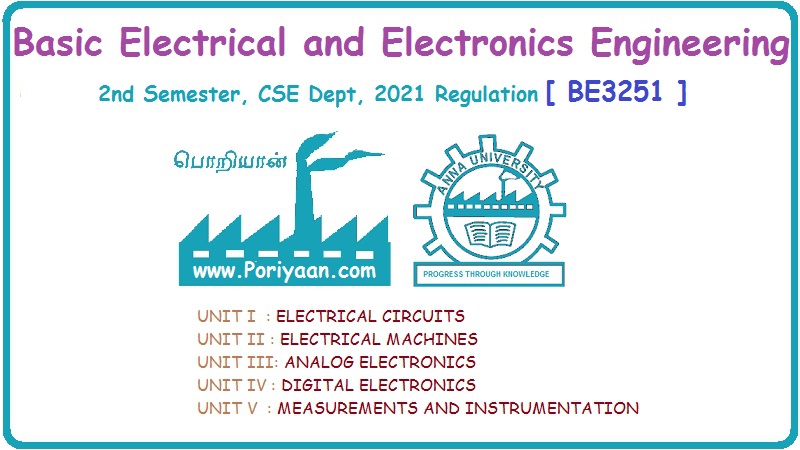Basic Electrical and Electronics Engineering: Unit IV: Digital Electronics
Conversion of Decimal Number to any Radix Number
with Solved Example Problems
Conversion of decimal number to other number system have to follow two steps.(i) Convert the integer parts by successive division method,(ii) Convert the fraction part by successive multiplication method.
CONVERSION
OF DECIMAL NUMBER TO ANY RADIX NUMBER
Conversion
of decimal number to other number system have to follow two steps
(i)
Convert the integer parts by successive division method.
(ii)
Convert the fraction part by successive multiplication method.
In
successive division we repeatedly divide the integer part of the decimal number
by radix (r) until quotient is zero. The remainder of each division becomes the
numerical value of the new radix.
Decimal to Binary
Problem: 6
Convert decimal number (29)10
to binary equivalent.
Solution:
Divide
29 by 2
Pppppppppppppppppppppppp
(29)10
=> (11101)2
Problem: 7
Convert decimal number 225 to
binary value.
Solution:
N
= (225)10
(225)10
=> (11100001)2
Successive
Multiplication for Fractional Part:
The
fractional decimal numbers to another radix number is obtained using a
successive multiplication method. The number is multiplied by the radix of new
number, producing a product in that has integer part and fractional part. The
integer part of product becomes a numeral in the new radix. The fractional part
is again multiplied by the radix. This process is repeated until fractional
part reaches zero.
Problem: 8
Convert (0.825)10
decimal number to binary number.
Solution:
(0.825)
× 2 = 1.650 = 0.650 = 1
(0.650)
× 2 = 1.300 = 0.300 = 1
(0.300)
× 2 = 0.600 = 0.600 = 0
(0.600)
× 2 = 1.200 = 0.200 = 1
(0.200)
× 2 = 0.400 = 0.400 = 0
(0.400)
× 2 = 0.800 = 0.800 = 0 ↓
(0.825)10
=> (110100... )2
Problem: 9
Convert (14.25)10 to
binary number system.
Solution:
Integer
part (14) fraction part (0.25)
ppppppppppppppppppppp
0.25
× 2 = 0.50 = 0
0.50
× 21.00 = 1
.01
(14.25)10
=> (1110.01)2
Conversion of Decimal to Octal Number
Problem: 10
Convert decimal number 37.42 to
octal number.
Solution:
(0.42)10
0.4
× 8 = 3.2 → 3
0.2
× 8 = 1.6 → 1
0.6
× 8 = 4.8 → 4
0.8
× 8 = 6.4 = 6
0.4
× 8 = 3.2 = 2 ↓
(37.42)10
=> (45.31463)8
Problem: 11
(752.63)10 convert to
octal number system.
Solution:
0.63
× 8 = 5.04 = 5
0.04
× 8 = 0.32 = 0
0.32
× 8 = 2.56 = 2
0.56
× 8 = 4.48 = 4
0.48
× 8 = 3.84 = 3 ↓
(752)
=> (1360)8
(752.63)10 => (1360.50243)8
Problem: 12
Convert decimal number 225 to octal
number system.
Solution:
Pppppppppppppppppppp
(225)10
= (341)8
Decimal to Hexadecimal Number System
Problem: 13
Convert (225)10 to hexa
decimal number system.
Solution:
Ppppppppppppppppp
(225)10
→ (E1)16
Problem: 14
Convert decimal number 1938.257 to
hexa decimal number system.
Integer part:
Ppppppppppppppppp
(1938)10 ⇒ (792)16
Fractional part:
0.257
× 16 = 4.112 = 4
0.112
× 16 = 1.792 = 1
0.792
× 16 = 12.672 = C
0.672
× 16 = 10.752 = A ↓
(0.257)10
⇒ 0.41CA
(1938.257)10
⇒ (792.41 CA)16
Basic Electrical and Electronics Engineering: Unit IV: Digital Electronics : Tag: : with Solved Example Problems - Conversion of Decimal Number to any Radix Number
Related Topics
Related Subjects
Basic Electrical and Electronics Engineering
BE3251 2nd semester Mechanical Dept | 2021 Regulation | 2nd Semester Mechanical Dept 2021 Regulation
Basic Electrical and Electronics Engineering
BE3251 2nd Semester CSE Dept 2021 | Regulation | 2nd Semester CSE Dept 2021 Regulation

